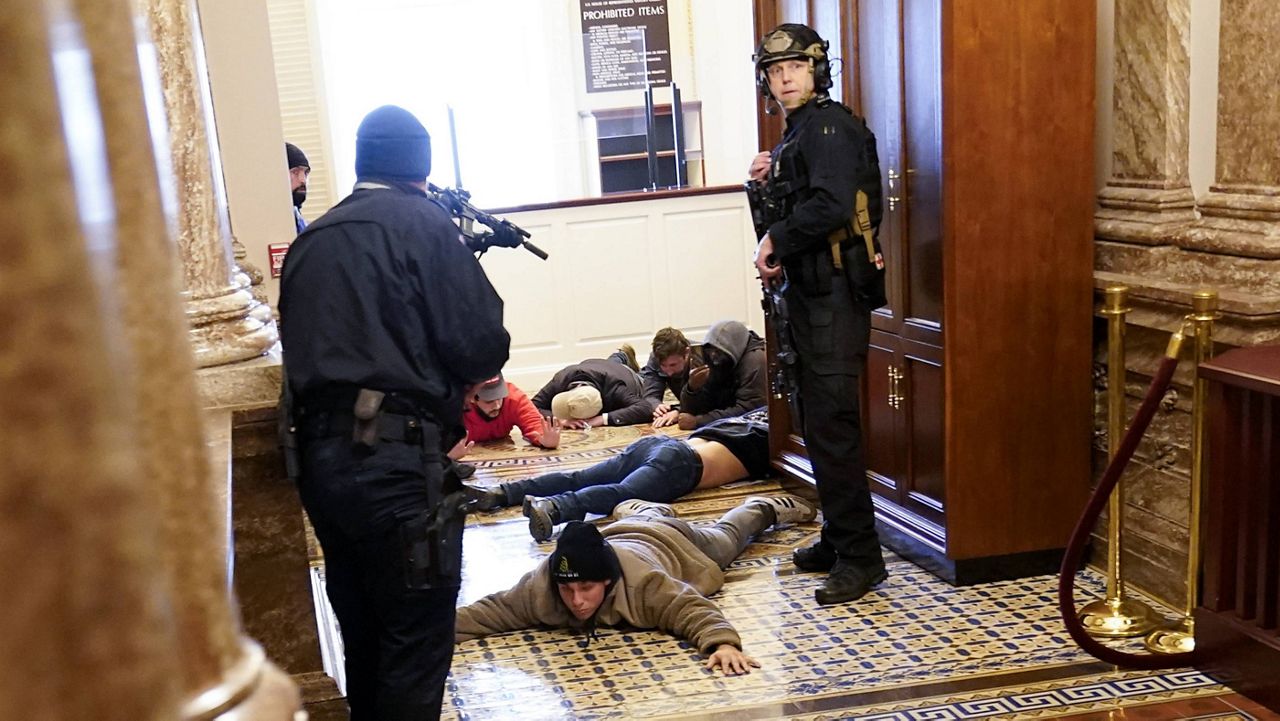WASHINGTON — The acting chief of the U.S. Capitol Police apologized to members of Congress on Tuesday for her department’s failures during the deadly Jan. 6 riot at the Capitol by supporters of former President Donald Trump.
What You Need To Know
- Yogananda Pittman, acting chief of U.S. Capitol Police, apologized Tuesday to members of Congress on Tuesday for her department’s failures during the deadly Jan. 6 riot
- Pittman appeared via video conference before the House Appropriations Committee in a private briefing
- Pittman said the department knew the planned protest could turn violent and took some proactive measures, but that it still “did not do enough” to protect the Capitol
- Pittman also said former Chief Stephen Sund's request to the Capitol Police Board two days before the riot for National Guard help was rejected
Chief Yogananda Pittman told members of the House Appropriations Committee that the department “failed to meet its own high standards as well as yours.”
“Although the Department fulfilled its mission of protecting Members and democracy ultimately prevailed, the insurrectionists’ actions and the Department’s inability to immediately secure the U.S. Capitol emboldened the insurrectionists and horrified millions of American [sic],” Pittman said, according to her prepared remarks.
“I am here to offer my sincerest apologies on behalf of the Department.”
Pittman was not the acting chief at the time of the assault on the Capitol. She replaced Stephen Sund, who resigned Jan. 16.
Pittman appeared before the House panel via video conference in a private briefing.
The siege of the Capitol left five people, including a Capitol police officer, dead. Another officer who was on duty the day of the riot died three days later by suicide, his family said. Members of Congress, who had convened to vote on certifying Joe Biden’s Electoral College win, had to be rushed to a secure location, halting proceedings for several hours.
Pittman said the department knew the planned protest could turn violent and took some proactive measures, but that it still “did not do enough” to protect the Capitol.
“Let me be clear: the Department should have been more prepared for this attack,” she testified. “By January 4th, the Department knew that the January 6th event would not be like any of the previous protests held in 2020. We knew that militia groups and white supremacists organizations would be attending. We also knew that some of these participants were intending to bring firearms and other weapons to the event. We knew that there was a strong potential for violence and that Congress was the target.”
Pittman said Sund asked the three-member Capitol Police Board to declare a state of emergency and deploy help from the National Guard. The board denied the request, she said, but encouraged Sund to contact the D.C. National Guard to determine how many troops it could send on short notice if needed, which Sund did. But after the rioting began Jan. 6, it took over an hour for the board to approve Sund’s request to call in the National Guard, Pittman said.
The acting police chief said the department had every available officer working that day — more than 1,200 — but that was “no match for the tens of thousands of insurrections (many armed) attacking the Capitol.”
While several Capitol police officers were suspended since Jan. 6, Pittman said the “vast majority” of the force “performed valiantly in the face of extraordinary violence.” She credited them for members of Congress and their staffs being led to safety.
Pittman said many Capitol cops are now suffering from PTSD and there also has been an “uptick” in COVID-19 infections on the force since the riot.
She said the department began immediately after the attack taking action to secure the Capitol complex “now and into the future.” National Guard troops have been on hand, access to the campus has been restricted, new non-scalable fencing has been added, and steps have been taken to share intelligence from its law enforcement partners and relay that information to officers, Pittman said.
“As the Acting Chief, I take responsibility for the mistakes that were made by the Department, and I pledge to this Committee, the Congress, the American people, and my USCP colleagues, that we will do better going forward, but we need to make changes,” she said.



